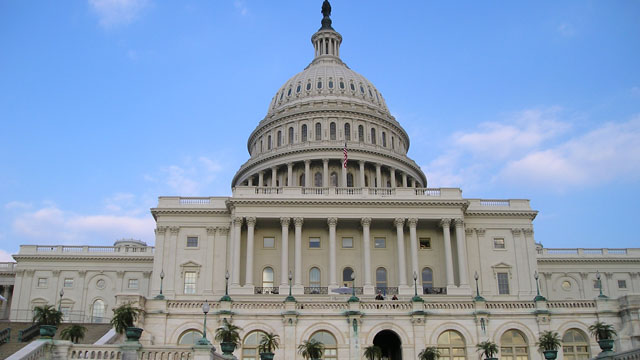Legislative Committee update
MCAA positioned to succeed in legislative victories

We expect that most of the remainder of 2011 will be focused on passing an “omnibus” appropriations bill that will include funding for most, if not all, of the federal agencies and programs, and the legislation from the JSCDR that must be passed by Dec. 23, 2011.
With that being said, there are a number of priorities that we still will be pushing for in both of these pieces of legislation.
112th Congress Priorities
3% Withholding TaxThe masonry industry opposes the 3% withholding tax, and the MCAA has pushed for complete repeal of the tax. The MCAA has met with Members of Congress to re-introduce legislation that would repeal the tax and gain cosponsors of the bills.
In January 2011, Senator David Vitter (LA) introduced S. 89, the Withholding Tax Relief Act of 2011, in the Senate and, currently, has 12 cosponsors. The proposed legislation repeals provisions of the Tax Increase Prevention and Reconciliation Act of 2005 requiring federal, state and local governmental entities to withhold 3% of payments due to vendors providing goods and services to such entities.
Senator Scott Brown (MA) introduced his bill, S.164 on Jan. 25, 2011, which currently has 23 cosponsors. Senator Brown’s bill would repeal the imposition of withholding on certain payments made to vendors by government entities and has been referred to the Committee on Finance.
As in the 111th Congress, Congressman Wally Herger (CA) introduced a House bill, H.R. 674, in February 2011 to amend the Internal Revenue Code of 1986 to repeal the imposition of 3% withholding on certain payments made to vendors by government entities. The bill currently has 238 cosponsors.
We will continue to work with both the House and Senate to pass this much-needed repeal legislation.
Life-Cycle Cost
H.R.2055, the Military Construction and Veterans Affairs Appropriations Act, was passed by the House 411 to 5 on June 14, and on July 20, the Senate passed an amended version of this bill 97 to 2. Differing Life-Cycle Cost language was included in both the House and Senate versions, and the differences between the bills currently are being resolved.
Life-Cycle Cost language also was included in both the House and Senate versions of the National Defense Authorization Act. Like the Military Construction Appropriations bills, the two differing versions of the legislation currently are being resolved.
Playing off of the momentum from 2010, a coalition of cement and concrete companies has kept the “all-federal” idea alive by successfully lobbying the House Appropriations Subcommittee on Financial Services to obtain LCC report language accompanying the Financial Services and General Government Funding Bill. The report directs the Office of Management and Budget (OMB) to emphasize in its guidance to federal agencies (Circular A-94) the importance of incorporating LCC analysis in federal facilities acquisitions. The language is comprehensive and applies to all major infrastructure projects and all agencies across the federal government. The Senate is being lobbied for similar language.
Estate Tax
The MCAA has been supportive of efforts to permanently repeal the estate tax, and, short of that, has supported legislation to increase the exemption level to $5 million, and reduce the rate to 35 percent, phased-in over 10 years.
A reinstatement of the lapsed estate tax was included in a broad measure that extended the 2001 and 2003 tax cuts, provided a one-year reduction in Social Security taxes paid by workers, and renewed expanded benefits for the long-term unemployed.
This builds off of our win on Dec. 16, 2010, when Congress passed the Tax Relief, Unemployment Insurance Reauthorization, and Job Creation Act of 2010, which set the rate at 35 percent and the exemption at $5 million. We are hopeful and will continue to lobby that the Joint Select Committee on Deficit Reduction will include some sort of estate tax relief in the deal that finally is produced in November 2011.
About the Author
Matthew B. Keelen, founder and President of the government affairs firm The Keelen Group, is a widely known and highly regarded lobbyist and political strategist with experience building relationships with key figures and a reputation for consistently delivering hard-earned victories. Acknowledged for his innate ability to establish and develop long lasting political relationships, Keelen has dozens of time-tested relationships with Members of Congress, including many who are in positions of considerable influence today. To learn more about The Keelen Group, visit www.keelengroup.com.


















